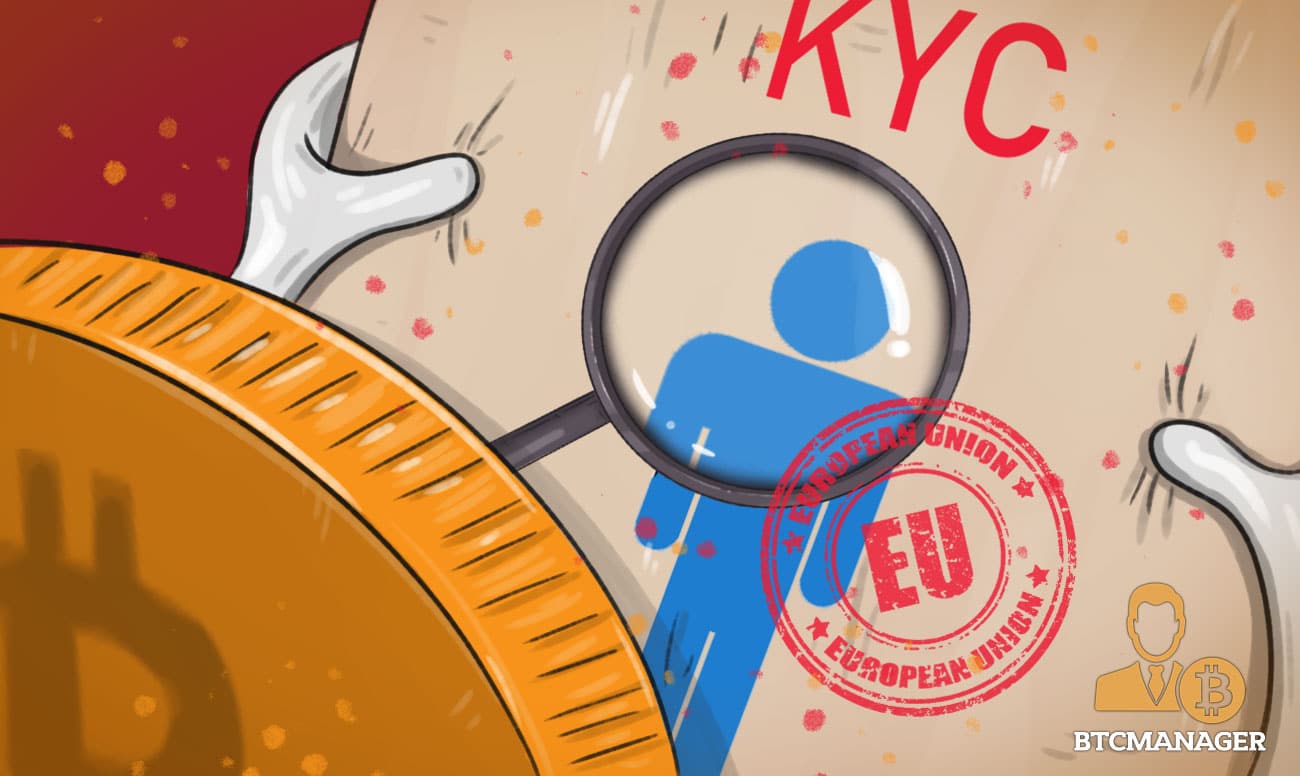Renewed EU KYC Enforcement May Reinforce Bitcoin Legitimacy

The general theme in the cryptocurrency market in 2018 has been government regulations. In many regions of the world, governments appear to be taking a more serious approach to monitoring the activities of the crypto ecosystem.
KYC and AML Procedures
The EU has been at the forefront of creating a robust regulatory framework for the burgeoning crypto market with a lot of emphasis on Know your Customer (KYC) and Anti-Money Laundering (AML) regulations. On May 14, 2018, the EU agreed to a renewed drive at enforcing KYC and AML compliance in the crypto market.
According to the working group, robust KYC and AML regulations makes it difficult for criminal elements to use cryptos as a vehicle for perpetrating crimes or hiding the proceeds from the illicit activities. As a result, different segments of the market including exchange platforms and wallet providers must carry out the same identity verification processes as banks.
Vetting the identity of customers is also essential in the fight against terrorist organizations who might take advantage of anonymous cryptocurrency transactions to fund their nefarious activities. In fact, together with money laundering, terrorist funding is the primary worry of many governments in the crypto sphere.
The EU aren’t the only ones calling for stricter KYC and AML regulations. In South Korea, anonymous trading is banned, and financial watchdogs regularly inspect the accounts of traders in search of inconsistencies and irregularities. Japan, via its Financial Services Agency (FSA), has also come down hard on exchange platforms concerning KYC. In the United States, exchange platforms are mandated to observe strict KYC guidelines which must be satisfied before a user is allowed to trade.
Will Transparency Drive Crypto Adoption?
The mostly unregulated and anonymous nature of crypto transactions has made them a likely haven for criminals. Many experts believe that part of the meteoric rise in the prices of cryptocurrencies can be attributed to this aura of anonymity.
Presently, the total market capitalization of the cryptocurrency market stands at over $400 billion. Cryptos have been identified as providing a conduit for illegal cash flows and the purchase of prohibited items, especially on the dark web platforms. Thus, commentators like Larry Fink, the chairman of BlackRock has described digital tokens as an “index of money laundering.”
With these new EU regulations, much of this anonymity should be eroded, paving the way for a more legitimate feel to transactions. Further to that, law enforcement and regulatory officials will be able to track and monitor crypto payments.
On the flip side, illegal cryptocurrency transactions can be moved from online exchange platforms into dark web domains where they become virtually impossible to track. If that happens, at least, legitimate crypto traders can rest assured in the knowledge that their transactions will not be deemed suspicious. Thus, bitcoin and other cryptos can begin to enjoy some semblance of legitimacy which in turn will enhance their adoption in mainstream finance.
Already, there has been some response to the EU directive as exchange platforms are upgrading their KYC and AML procedures. BTCManager recently reported that Localbitcoins had introduced strict identity verification guidelines in compliance with the EU directive.













